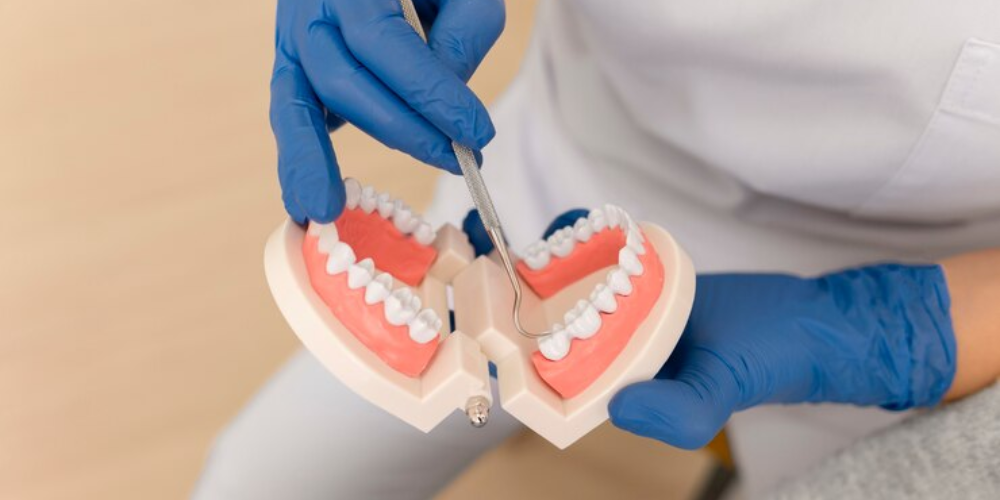Congratulations on your full mouth reconstruction! You’ve invested time, effort, and resources into achieving the perfect smile. Now that the transformative process is complete, it’s crucial to maintain and care for your new dental masterpiece. This guide will walk you through the essential steps, dos and don’ts, and frequently asked questions to ensure your radiant smile lasts a lifetime.
Caring for Your New Smile: Dos and Don’ts
Do Stick to Oral Hygiene Routine: Your oral hygiene routine is more critical than ever. Brush your teeth twice a day, floss regularly, and use an antiseptic mouthwash to keep your gums healthy and prevent infections.
Don’t Skip Dental Check-ups: Regular dental check-ups are your best defense against potential issues. Schedule appointments with your dentist for cleanings and examinations to catch any problems early.
Do Be Mindful of Your Diet: While your new smile is robust, it’s essential to be cautious of what you eat. Avoid overly hard or sticky foods that could damage dental work. Opt for a balanced diet rich in nutrients to promote overall oral health.
Don’t Ignore Discomfort: It’s normal to experience some discomfort after full mouth reconstruction. However, persistent pain or discomfort should not be ignored. Contact your dentist promptly if you encounter any issues.
Do Protect Your Teeth: If you participate in contact sports or grind your teeth at night, consider using a mouthguard. This simple device can prevent damage to your newly reconstructed teeth and ensure their longevity.
Maintaining Oral Hygiene Post Full Mouth Reconstruction
After full mouth reconstruction, maintaining excellent oral hygiene is crucial for the longevity and health of your new smile. Here are some dos and don’ts to guide you through the process:
Dos
Brush Regularly: Use a soft-bristled toothbrush to brush your teeth twice a day. Brush gently, paying attention to each tooth and the gumline.
Floss Daily: Flossing is essential for removing plaque and debris between your teeth. Use a gentle hand and take your time to avoid damaging dental work.
Use Antiseptic Mouthwash: An antiseptic mouthwash can help reduce bacteria and prevent infections. Rinse your mouth as directed by your dentist.
Follow Your Dentist’s Advice: Your dentist will provide specific instructions for caring for your new smile. Follow their advice regarding oral hygiene products and techniques.
Stay Hydrated: Drinking plenty of water is beneficial for your overall health and can contribute to a healthy mouth. Water helps flush away bacteria and food particles, reducing the risk of infection.
Don’ts
Avoid Hard Foods: Steer clear of overly hard or crunchy foods that could potentially damage your dental work. Consume a diet rich in fruits, vegetables, and dairy products. Opt for softer options to protect your investment.
Limit Sugary Foods: Excessive sugar can lead to cavities and other dental issues. Limit your intake of sugary foods and beverages to maintain optimal oral health.
Quit Smoking: Smoking is harmful to your oral health and can stain your teeth. If you smoke, consider quitting to protect your newly reconstructed smile.
Refrain from Grinding Your Teeth: Teeth grinding can damage dental work. If you grind your teeth at night, then it can be a huge problem for the dental structure to function properly. Hence, If teeth are grinding at night, ask your dentist about a nightguard because the night guard saves the teeth from getting damaged.
Don’t Skip Dental Appointments: Regular dental check-ups are essential for monitoring the health of your teeth and addressing any issues promptly. Do not skip these appointments.
The First Days: Gentle Care for a Delicate Smile
In the initial days after your full mouth reconstruction, your gums and teeth will be more sensitive than usual. It’s imperative to practice gentle care to avoid any discomfort or complications. Here’s what you need to focus on during this crucial period:
Mindful Eating
- Stick to soft foods to minimize strain on your teeth.
- Avoid extremely hot or cold items to prevent sensitivity.
- Cut your food into smaller, manageable pieces to reduce stress on your jaw.
Maintain Oral Hygiene
- Follow your dentist’s instructions for brushing and flossing.
- Use a soft-bristled toothbrush to prevent irritation.
- Be gentle around the reconstructed areas to avoid any damage.
Stay Hydrated
- Drinking water helps in the healing process and keeps your mouth clean.
- Opt for room-temperature water to avoid sensitivity.
Your new smile is a testament to your commitment to oral health and self-care. By following these dos and don’ts and adhering to your dentist’s advice, you’re on the path to enjoying a radiant and healthy smile for years to come. Your new smile is a testament to the care and commitment you’ve invested in your dental health. By following these guidelines and incorporating them into your daily routine, you’ll ensure that your full mouth reconstruction results in a lasting, radiant smile. Remember, the key to longevity is consistency, so make oral hygiene a priority and relish in the beauty of your transformed smile.
FAQs
Q: Is it normal to experience discomfort after full mouth reconstruction?
A: Yes, some discomfort is normal. However, persistent pain should be addressed with your dentist.
Q: How often should I schedule dental check-ups after reconstruction?
A: Regular check-ups every six months are recommended for maintaining optimal oral health.
Q: Can I resume normal eating habits after full mouth reconstruction?
A: While your new smile is durable, it’s advisable to avoid overly hard or sticky foods to prevent damage.
Q: Should I continue using the same oral hygiene products recommended by my dentist?
A: Yes, follow your dentist’s recommendations for toothpaste, toothbrush, and mouthwash to ensure proper care.
Q: What should I do if I accidentally damage my dental work?
A: Contact your dentist immediately if you damage your dental work. They will advise you on the next steps.




